A car starts moving rectilinearly, first with acceleration (the initial velocity is equal to zero), then uniformly, and finally, decelerating at the same rate comes to a stop. The total time of motion equals . The average velocity during this time is equal to How long does the car move uniformly?
Important Questions on Kinematics I
A hot-air balloonist rising vertically with a constant velocity of magnitude , releases a sandbag at an instant when the balloon is above the ground (figure). After it is released, the sandbag is in free fall. Sketch and graphs for the motion, taking origin at ground.
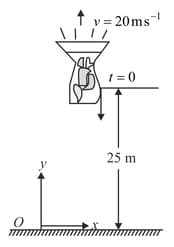
At the height of , a particle is thrown up with and particle is thrown down with and particle released with . Draw graphs of each particle.
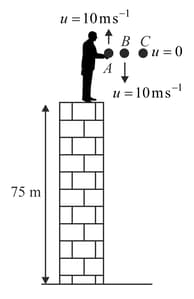
(a) Displacement-time
(b) Speed-time
(c) Velocity-time
(d) Acceleration-time
The and graph are given for two particles. Find the accelerations of the particles at .

The velocity-displacement for a jet plane on a straight runway is shown in the figure. Determine the speed and acceleration of the jet plane at .
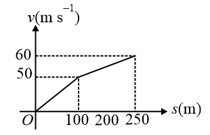
Referring to graph, find the velocity when the displacement of the particle is . Assume initial velocity as zero.
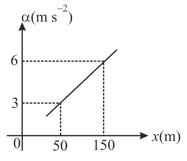
Referring to the diagram of a particle, find the displacement of the particle during the last .
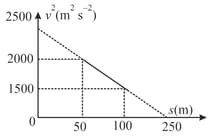
(a) What can you say about velocity in each of the following position-time graphs?
(i) 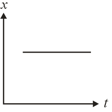 (ii)
(ii) 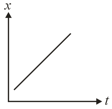
(iii) 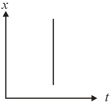 (iv)
(iv) 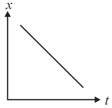
(v) 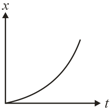 (vi)
(vi) 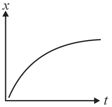
(vii) 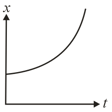 (viii)
(viii) 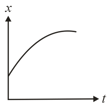
(b) The slope of the velocity-time graph is equal to acceleration. (True/False)
(c) What does the area under the acceleration-time graph represent?
(d) Can the velocity-time graph be parallel to the velocity axis? (Yes/No). Why?
(e) What is the slope of the graph in uniform motion?
(a) A ball is thrown vertically upwards. After some time, it returns to the thrower. Draw the velocity-time graph and speed-time graph.
(b) A ball is dropped from some height. After rebounding from the floor, it ascends to the same height. Draw the velocity-time graph and speed-time graph.
